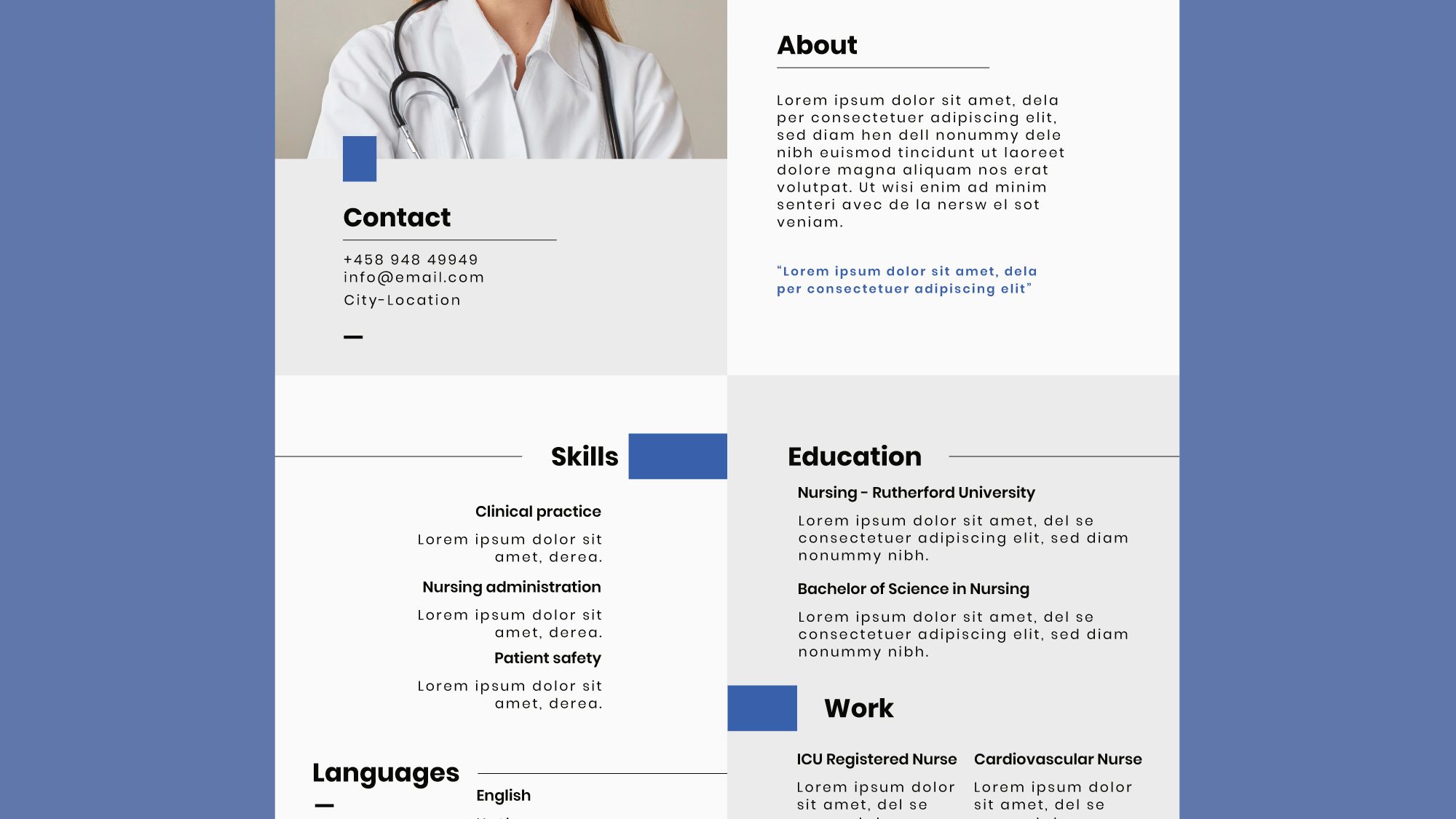In every corporation that works with data, data analysts play a considerable role. Their job description involves analyzing large chunks of data to gain insights that form the building blocks of data-driven decisions. Data analyst jobs NHS?
The work of a data analyst who wants a job in the NHS revolves around providing care. Data analysis at the NHS also revolve around informing healthcare decisions. Why does the demand for data analysis exist?
The answer is that accurate data is the backbone of every efficient healthcare system. Joining the NHS makes it possible for you to enjoy job security in the midst of endless development opportunities.
In this article, we will explore everything you need to know about becoming an NHS data analyst. This guide will cover essential skills for the job, job vacancies, and tips for acing interviews.
Let’s dive in!

Source: Freepik
Essential Skills for NHS Data Analyst Jobs
There are essential skills that you need to succeed as a data analyst in the NHS, and you need to master both technical and soft skills. Here’s an overview of the skills you need:
#1. Technical skills
To secure proficiency for your data analysis job, you need to be proficient in:
- SQL and Excel: SQL is fundamental for querying and manipulating large healthcare datasets. On the other hand, Excel is a versatile option for data analysis, visualisation and reporting. Being proficient in both of them will help you to organize and manage data efficiently.
- Data visualization tools (Tableau and Power BI): In the NHS, tableau and Power BI can be used to create clear and informative visuals to communicate findings to stakeholders.
- Statistics and data analysis techniques: You must have a solid foundation in data distribution, performing hypothesis testing, and building predictive models. You should also have knowledge of techniques like descriptive statistics, regression analysis, and time series analysis.
- Programming skills (Python and R): Python and R are popular languages for data analysis. Learning to use these languages enables data analysts to automate manual tasks and do other meaningful things, such as building complex models.

Source: Freepik
#2. Soft skills
Soft skills are personal qualities that enable effective communication, interaction, and teamwork. Employees are expected to have certain soft skills to enable a seamless relationship with colleagues in the workplace. Here are the soft skills that a data analyst needs to have:
- Problem-solving and critical thinking: Data analysts in the NHS must be able to look out for and solve complex data-related problems in the healthcare system. It pays to be a critical thinker because it helps you to evaluate data quality, interpret results, and make informed decisions.
- Communication and presentation skills: You need to effectively communicate your findings to a large number of stakeholders, including managers, policymakers, and healthcare professionals. Being able to present data well makes your delivery clear and engaging.
- Paying attention to detail: To make certain decisions, healthcare data is required and you ought to be meticulous in your approach to data. This is because you cannot afford to miss any bit of data. Not paying attention or allowing errors can damage the efficiency of the NHS.
- Teamwork and collaboration: Data analysts often work in partnership with healthcare professionals. Effective teamwork and collaboration are essential for successful data analysis
By developing these technical and soft skills, you’ll put yourself a top candidate for NHS data analyst jobs.
Current NHS Data Analyst Vacancies for Graduates
The NHS constantly hires data analysts across different specialties and locations. As a graduate, you’ll find plenty of opportunities to kickstart your career.
#1. NHS Trusts
Many NHS Trusts across the UK are looking for fresh talent. Trusts in London, Birmingham, and Manchester often post graduate-friendly roles. These jobs involve working closely with clinical teams to support data-driven decisions.
#2. Mental Health and Public Health
The mental health sector is seeing a rise in data analyst vacancies. You’ll work with mental health professionals in these roles to analyse patient data and improve care delivery. Public health organisations also need data analysts to support disease prevention programs.
How to Find These Jobs
To find current vacancies, head to NHS Jobs. You’ll find a wide range of listings across different locations and specialities. Applying early increases your chances of landing a role. Keep your CV updated and tailored for each position.
By actively searching and applying, you’ll increase your chances of finding the perfect role within the NHS. You can leverage the job search function of LinkedIn and other healthcare job boards.
Crafting a Standout Data analyst jobs NHS CV and Cover Letter
Your CV and cover letter are what every recruiter sees before you get the chance to converse with them. It is more like your chance to impress them. However, a good impression can only be spurred from a CV and cover letter that meets the mark.
How can you make your CV and cover letter stand out?
#1. Creating an impactful CV
To have an impactful CV, you need to tailor it to NHS requirements. Highlight skills that are relevant to NHS and make sure to emphasize your proficiency in SQL, R, Python, and other tools used for data analysis in the NHS.
You can use quantifiable metrics to demonstrate how impactful your efforts was in a data-driven process. Make sure to highlight your experience of working in a healthcare setting, if you have.

Source: Freepik
Use clear headings to organize your CV into sections like Skills, Projects, and Education. Ensure to list your most recent experience first and maintain a consistent format throughout for readability sake.
#2. Writing a tailored cover letter
For your cover letter, personalize it. Carry out a research on the NHS Trust or organization and do well to tailor your letter to their requirements. Your cover letter should show your genuine enthusiasm for the role, and it should also contain your commitment to improving healthcare outcomes.
In your cover letter, explain how your skills and experience align with the specific requirements of the role. Get to use concrete examples of how you have used your skills to achieve positive outcomes in the past. Your cover letter should also demonstrate your understanding of the core values of the NHS. Additionally, explain how your own values align with the mission and goals of the NHS.
Here’s a sample opening for your cover letter:
Dear [Hiring Manager Name],
I am writing to express my keen interest in the NHS Data Analyst position advertised on [Job board]. With a strong foundation in data analysis and a passion for improving healthcare outcomes, I am confident in my ability to contribute significantly to your team.
[Briefly highlight your relevant skills and experience]
I am particularly drawn to the NHS’s commitment to providing high-quality healthcare to all. My previous experience in [relevant field] has equipped me with the skills and knowledge necessary to [specific skills relevant to the role]. I am eager to apply my expertise to support the NHS’s mission of improving patient care.
I have attached my CV for your review, which further details my qualifications and achievements. Thank you for your time and consideration. I would welcome the opportunity to discuss my application further in an interview.
Sincerely, [Your Name]
Read also: Some Common Compliance Interview Questions and Their Answers
NHS Data Analyst Jobs for Graduates: Your Complete Guide 2024 – Common NHS Interview Questions and Answers
Technical Questions
- SQL: How would you optimize a slow-running SQL query?
- Answer: To optimize a slow-running SQL query, I would start by analyzing the query execution plan to identify bottlenecks, such as inefficient joins, unnecessary sorts, or full table scans. After my analysis, I would implement optimization techniques like indexing, creating materialized views, or rewriting the query to improve performance.
- Python: What are some common Python libraries for data analysis, and how have you used them in previous projects?
- Answer: I have extensive experience using libraries like NumPy, Pandas, Matplotlib, and Seaborn for data manipulation, analysis, and visualization. For example, in a recent project, I used Pandas to clean and preprocess a large dataset, NumPy for numerical calculations, and Matplotlib to create informative visualizations.
- Data Cleaning: How do you handle missing data and outliers in your datasets?
- Answer: To handle the issue of missing data, I make use of a combination of techniques to address missing data and outliers. I analyze the nature of the missingness and choose appropriate imputation methods, such as mean/median imputation, mode imputation, or using predictive models. Statistical methods like Z-scores or IQR come into play when I want to detect and handle outliers then decide whether to remove or correct them based on their impact on the analysis.
Behavioural Questions – Data analyst jobs NHS
- Teamwork: Describe a time when you had to work collaboratively with a team to achieve a common goal.
- Answer: In a previous project, I worked closely with a cross-functional team of data scientists, analysts, and domain experts to develop a predictive model for patient readmissions. We leveraged our diverse skills and perspectives to identify key features, build and evaluate models, and ensure the final solution met the clinical needs.
- Problem-Solving: How do you approach a complex data analysis problem that you’ve never encountered before?
- Answer: I follow a structured approach to tackle unfamiliar data analysis problems. First, I break down the problem into smaller, more manageable components. Then, I conduct thorough research and explore potential solutions. Finally, I experiment with different methods and iterate until I find an effective approach.
- NHS Values: How do your values align with the NHS’s core principles of compassion, respect, equality, and professionalism?
Answer: I believe in the core values of the NHS and strive to embody them in my work. Compassion motivates me to use data to improve patient outcomes and enhance the quality of care. Respect for individuals drives me to treat all patients and colleagues with dignity and empathy. Equality ensures that everyone has equal access to quality healthcare, regardless of their background. Professionalism guides me to maintain high standards of conduct and deliver exceptional results.

Source: Freepik
Presenting Yourself Professionally and Demonstrating Understanding of the NHS Environment
To come off as one who has sufficient knowledge about the NHS, you need to research the NHS. Researching will help you demonstrate your knowledge of the NHS’s structure, priorities, and challenges. This will show your commitment to the organization and your ability to contribute effectively.
Ensure to tailor your responses and relate your skills to the specific requirements of the NHS data analyst role. Additionally, ask questions about the projects and organization’s future decisions as this helps to show your interest in the role and the NHS
Resources for Aspiring NHS Data Analysts
Like every other career path, working towards becoming an NHS data analyst involves learning. There are myriads of platforms out there that can be put to good use. Let’s look at some of the resources you can glean from:
Online courses and certifications
Online courses and certifications are offered by e-learning platforms. These platforms specialize in providing a wide range of support to students who wish to learn.
- Coursera: Coursera is one of the top e-learning platforms worldwide. It offers specialized courses in data analysis, machine learning, and healthcare analytics.
- edX: Provides a wide range of courses on data science and related topics.
- DataCamp: With DataCamp, you can have access to interactive data analysis courses and certifications.
- NHS Academy: The NHS academy also provides training and development opportunities for NHS staff, including courses on data analysis and information management.
Books, Blogs, and Communities
- Books: “Data Analysis with Python” by Wes McKinney, “Introduction to Statistical Learning” by Gareth James et al., “The Art of Data Analysis” by David Spiegelhalter.
- Blogs: You can also stay up to date by reading healthcare data analysis blogs and joining relevant online communities to deepen your knowledge. Blogs like Towards Data Science and KD Nuggets contain information to help you learn more.
- Communities: Data Science Stack Exchange, Kaggle, LinkedIn data science groups.
Resources Specifically for NHS Data Analysts
- NHS Digital: The official website of NHS Digital, which provides resources, guidance, and support for data professionals in the NHS.
- NHS Confederation: A membership organization representing NHS providers, which offers insights into the NHS and its challenges.
- NHS Staff Council: A representative body for NHS staff, which provides information and support for employees.
Conclusion – Data analyst jobs NHS
Data analyst roles within the NHS offer a dynamic career path that involves analyzing healthcare data. Your role also involves helping the organization improve patient care and influence decisions. With job security, opportunities for professional development, and competitive salaries, this is a role where you can truly make a difference.
First, let your mind be on building the right skills. However, it does not stop at having the right skills. You need to craft a CV that stands out and prepare accordingly for interviews. There’s a wide range of resources that can help you on your journey and the NHS offers a wealth of vacancies across various regions and specialities.
Techwaka is a career development-focused blog where you can find resources, tips, visa sponsorship opportunities, and job listings for various sectors. The blog offers in-depth articles on securing the best roles, aceing interviews, and navigating the complexities of work visas. Techwaka is also a guidance hub for graduates who are looking to make a career switch.
